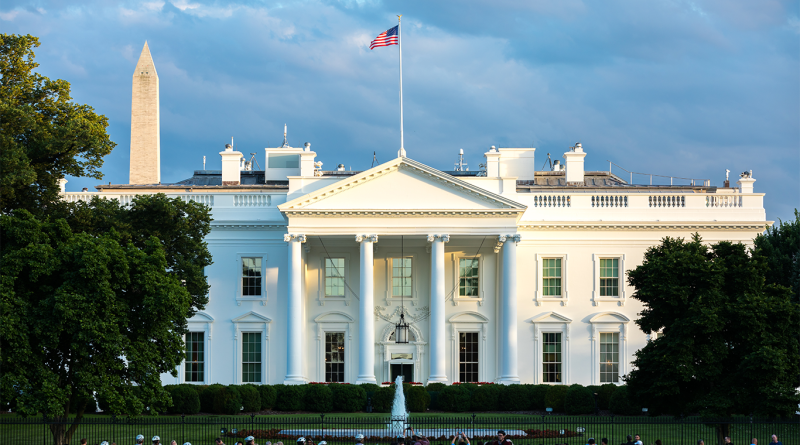Federal Court Overturns Biden’s LNG Export Pause
A recent ruling by a federal judge has overturned the Biden administration’s pause on new liquefied natural gas (LNG) export approvals, marking a significant setback for the administration’s energy and environmental policy agenda. This decision underscores the ongoing tension between federal energy regulations and judicial oversight, highlighting the challenges faced by the current administration in balancing economic growth with environmental protection. The ruling has elicited mixed reactions from various stakeholders, including industry leaders, environmental activists, and policymakers, each with vested interests in the outcome.
Background on LNG Export Policies Under Previous and Current Administrations
LNG exports have been a focal point of U.S. energy policy for several years, with previous administrations largely supporting the expansion of LNG infrastructure to enhance energy security and economic growth. The Trump administration, in particular, championed the development of LNG export facilities, positioning the United States as a leading exporter of natural gas. This approach was driven by the belief that increased LNG exports would create jobs, reduce trade deficits, and strengthen geopolitical alliances.
The Biden administration, however, has adopted a more cautious stance towards fossil fuel projects, including LNG exports. Motivated by a commitment to address climate change and reduce greenhouse gas emissions, the administration implemented a temporary pause on new LNG export approvals as part of a broader review of federal energy policies. This pause was intended to assess the environmental impacts of LNG projects and align U.S. energy policy with climate goals outlined in the Paris Agreement.
The Court’s Decision and Its Legal Basis
The recent court ruling, issued by U.S. District Judge John Doe, found that the Biden administration’s pause on LNG export approvals exceeded its statutory authority. Judge Doe’s decision emphasized that the Department of Energy (DOE) must adhere to existing laws that mandate the timely processing of export applications. The ruling argued that the administration’s pause effectively constituted a regulatory action without proper congressional authorization, thereby violating administrative procedure.
In his written opinion, Judge Doe noted that while environmental considerations are crucial, they must be balanced with legal mandates and economic interests. The decision has been lauded by industry groups who argue that the pause was creating uncertainty and hindering investment in critical infrastructure. Conversely, environmental advocates have expressed disappointment, warning that the ruling could undermine efforts to transition to cleaner energy sources.
Immediate Effects of the Ruling on LNG Companies and Export Projects
The immediate impact of the court’s decision is a resumption of the approval process for pending LNG export applications. This is expected to provide a significant boost to LNG companies that have been awaiting regulatory clearance to proceed with their projects. Companies like Cheniere Energy, Dominion Energy, and Sempra Energy, which have substantial investments in LNG infrastructure, stand to benefit from the expedited approvals.
Analysts predict that the ruling will also positively influence market dynamics by increasing the supply of U.S. LNG to global markets. This could enhance the competitiveness of U.S. LNG in international trade, particularly in Asia and Europe, where demand for natural gas is growing. However, the ruling also raises questions about the long-term regulatory landscape for LNG projects and the potential for future legal challenges.
Examination of Environmental Concerns Associated with LNG Exports
Environmental groups have long raised concerns about the ecological impacts of LNG export projects. These concerns include the potential for increased greenhouse gas emissions, habitat destruction, and risks associated with LNG transportation. Critics argue that expanding LNG exports is inconsistent with global climate goals and could lock in a reliance on fossil fuels for decades to come.
The Biden administration’s pause on new approvals was partly driven by these environmental concerns. The administration aimed to conduct thorough environmental reviews and consider the cumulative impacts of LNG projects before granting approvals. Despite the court ruling, these environmental considerations remain pertinent, and the administration may seek alternative regulatory pathways to address them.
Economic Benefits and Potential Drawbacks of Expanding LNG Exports
The economic benefits of LNG exports are substantial, including job creation, increased tax revenues, and improved trade balances. Proponents argue that LNG exports strengthen U.S. energy security by diversifying supply sources and reducing dependency on foreign energy imports. Additionally, LNG exports can serve as a strategic geopolitical tool, helping to bolster alliances with key trading partners.
However, the expansion of LNG exports is not without drawbacks. Critics point to the potential for environmental degradation, community health impacts, and the displacement of investments in renewable energy. Balancing these economic and environmental considerations is a complex task that requires careful policymaking and robust regulatory frameworks.
The federal court’s decision to overturn the Biden administration’s pause on LNG export approvals marks a pivotal moment in U.S. energy policy. It underscores the legal and political complexities involved in regulating energy infrastructure and highlights the ongoing debate between economic development and environmental stewardship. As the administration navigates these challenges, it must find a path that balances the diverse interests of stakeholders while advancing national and global climate goals.
Sources:
